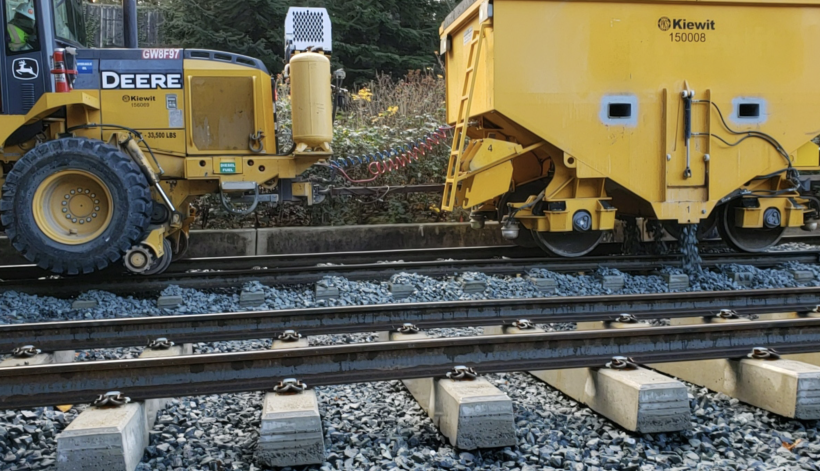Most people don’t give railway ballasts a second thought. But if you’re in the business of transporting goods by rail, then you know that these heavy stones play a crucial role in keeping your trains on track. In this post, we’ll take a closer look at why railway ballasts are so important and how they can benefit your business.
What Are Railway Ballasts?
Railway ballasts are large stones that are used to support and stabilise railway tracks. They are placed between the sleepers (or cross ties) on a track and help to distribute the weight of the train evenly. This is important because it helps to prevent the track from shifting or becoming damaged over time.
The size and type of stone used for railway ballasts vary depending on the needs of the particular railway. The most common type of stone used is granite, but other types such as limestone and trap rock are also sometimes used. The stones must be tough enough to withstand the weight of the trains passing over them day after day, so they need to be pretty sturdy!
Why Are Railway Ballasts Important?
Railway ballasts play a vital role in keeping tracks safe and operational. Without ballasts, tracks would quickly become worn down and unusable. The continuous movement of trains passing over tracks would cause them to shift and warp over time, which would eventually lead to derailments. By stabilising tracks, ballasts help to prevent these accidents from happening.
In addition to safety, ballasts also play an important role in efficiency. Tracks that are properly stabilised can handle more traffic without becoming overloaded or damaged. This is especially important for railways that transport large amounts of goods or passengers on a daily basis.
How Can Railway Ballasts Benefit Your Business?
There are several ways that railway ballasts can benefit your business:
-Improved Safety: By stabilising tracks, ballasts help to reduce the risk of accidents and injuries. They also help to keep the tracks level, which can prevent derailments. Additionally, ballasts can absorb some of the impact from trains, helping to protect the tracks from damage. This can save your business money in terms of liability costs and insurance premiums.
-Reduced Downtime: Well-maintained tracks are less likely to experience unexpected shutdowns or delays due to damage. By reducing the amount of unevenness in the tracks, ballasts can help trains move more smoothly and efficiently, which can lead to less downtime and delays. In addition, ballasts can help to absorb shocks and vibrations, which can further reduce wear and tear on the tracks and train cars. This can help keep your business running smoothly and keep your customers happy.
-Increased Efficiency: Stabilised tracks can handle more traffic without becoming overloaded or damaged. Ballasts can also help to distribute weight more evenly, which can help to prevent damage to the track and railway sleepers. This can help improve the efficiency of your operations and reduce shipping costs.
Conclusion:
As you can see, railway ballasts play a crucial role in keeping railways safe and operational. If you’re in the business of transporting goods by rail, then investing in quality ballasts can help improve the safety, efficiency, and overall profitability of your operation.
Laila Azzahra is a professional writer and blogger that loves to write about technology, business, entertainment, science, and health.
